Immune System Articles
Featured Articles
Read our latest stories on the people and scientific innovations making a difference in patients’ lives.

Science & Innovation
Viral vs Bacterial Infections: Different Pathogens, Different Approaches
When you experience symptoms of an infection such as fever, fatigue, decreased appetite, or pain, knowing whether a virus or bacteria is making you sick may be the key to getting the right treatment and feeling better.1,2Viruses and bacteria are among the most well-known causes of infection.3 Infections occur when viruses or bacteria invade the human host and proliferate.3 But there are some important distinctions between them, and it’s important to determine whether it’s a bacteria or virus...
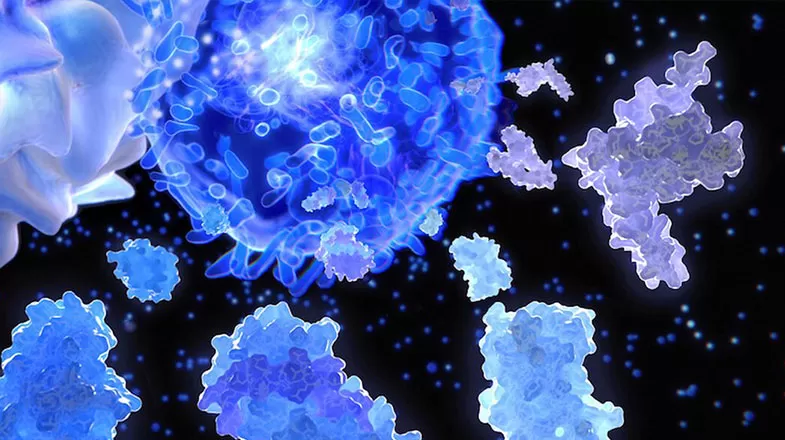
An Immune System “GPS” Uncovers Pathways to Treat Diseases
When it comes to understanding the immune system, we’re in the age of a data “traffic jam.” Thanks to advances in gene sequencing technology and decades of research, we’ve amassed a huge trove of information, but utilizing it to drive new insights can be challenging. A collaboration with Israel-based startup CytoReason is allowing Pfizer scientists to harness computational technology that functions as a “GPS” for the immune system. The tools help to unpack these complex data sets so they can...
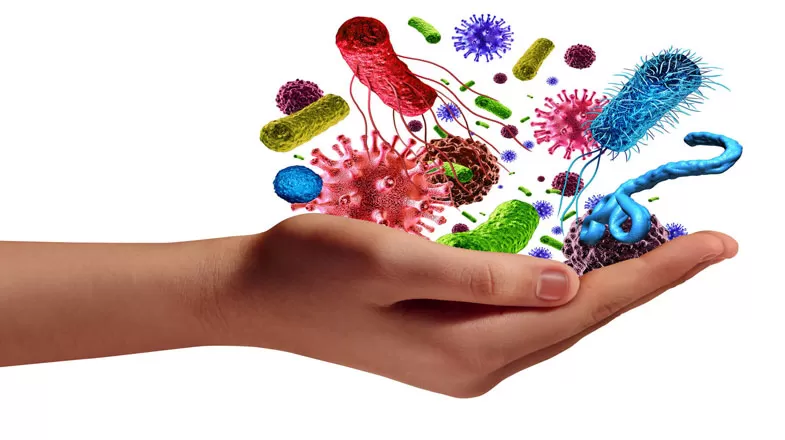
foundations-science
Can You Strengthen Your Immune System?
Is a strong immune system the solution to sickness? Can we keep ourselves well by strengthening our immune response? Sort of. And not really. Think of your immune system as a home security system for your body. Intact skin and mucus membranes keep out some bacteria and viruses, just as a fence around your house keeps most unwanted intruders off your property. When germs get inside the body, the immune system jumps into action and begins cranking out antibodies and delivering white blood cells...

Living & Wellbeing
Rheumatoid Arthritis (RA)
A Lens on Life is an unscripted docu-series that chronicles the stories of women and men living with various health challenges. Watch Elaine's inspirational story about her struggle with debilitating joint pain of RA, and how she overcame her symptoms to regain her lifestyle.
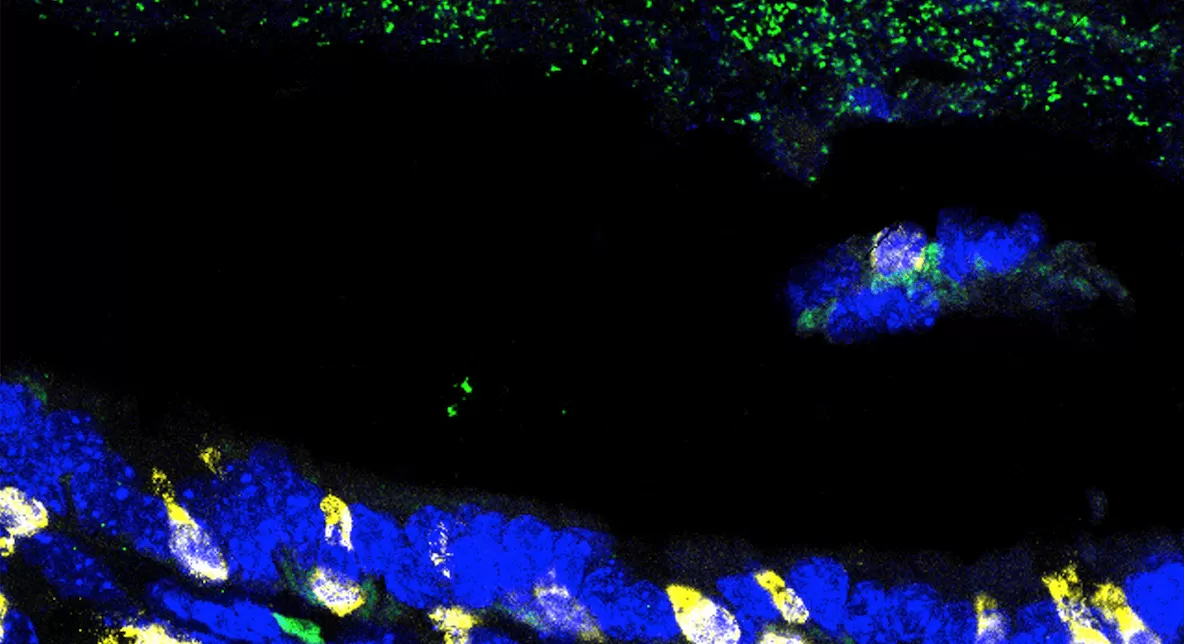
Mending Broken Walls: 5 Insights About Gut Health Helping IBD Patients
Our skin is the most visible barrier that separates our bodies from the outside world. But deep inside the body, we have another critical wall, the gut epithelial barrier, which helps to block pathogens and toxins, while selectively allowing nutrients and water to be absorbed. “The gut is a very exciting and dynamic kind of barrier,” says Marion Kasaian, Head of Epithelial Biology based at Pfizer’s Kendall Square, Cambridge, Massachusetts research site. “It has a larger surface area than skin...

Strategies for Managing Inflammatory Bowel Disease (IBD) Symptoms
When biologics to treat inflammatory bowel disease (IBD) were first released over two decades ago, they greatly improved quality of life for many patients. But these first-generation therapies have their shortcomings. Fewer than half of patients treated with these inflammation-blocking drugs will be in remission after one year of treatment. These treatments can also suppress the immune system, making patients vulnerable to infection.But now, thanks to advancements in our understanding of the...

Next-Gen Scientific Changemakers: Following 'Good Science' to Attack Cancer on All Fronts
After earning her Ph.D. in biomedical engineering from Washington University in St. Louis in 2010, Megan Kaneda was looking for a lab to do post-doc research. Her graduate studies focused primarily on nanoparticle drug delivery. But after reading a paper on the recruitment of immune cells into tumors by Judith Varner, a professor of pathology at the University of California San Diego, Kaneda switched paths in order to work with her in the emerging field of immunotherapy. “Honestly, I saw her...

Cytokines of Interest: Understanding Their Paths to Disease
In the diverse universe of cytokines, signaling proteins secreted by our cells that affect nearly every biological process in the body, there is a specific subset that scientists pay extra attention to for their role in autoimmune diseases, cancer, and other conditions. What sets apart these "cytokines of interest" — 57 in total — from others is that they’re dependent on a pair of enzymes called Janus kinases (JAKs) to transmit their messages to a cell. And in recent years, scientists have...

The Evolution of Inflammation
Hunting wooly mammoths with stone age technology took guts. If the archaeological record is to be believed, it also took an incredible ability to bounce back from serious injuries. Stone age burial sites are filled with examples of early humans who recovered from broken bones, dislocated limbs and infected wounds, all without any help from modern medicine. The active lifestyle required to feed oneself led to frequent injuries and infections, which means that the people who survived to pass...
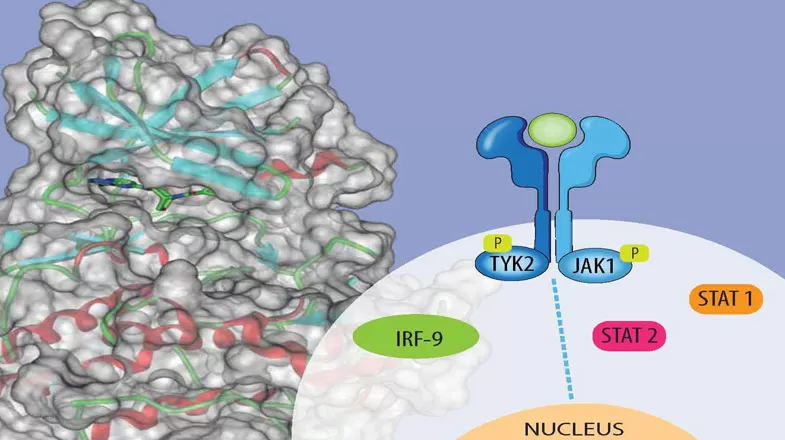
Matching Drugs to Diseases: Advances in Targeting JAKs Leading to New Autoimmune Therapies
Janus kinases (JAKs) named after Janus, the Roman two-faced god of duality, are enzymes with two “faces,” or domains, that play a key role in signal transduction of cytokines, the molecular messengers that trigger the inflammatory and immune responses. Scientific discoveries related to JAKs in recent years have led to novel treatments for autoimmune diseases and myeloproliferative disorders, a group of conditions where the bone marrow produces too many blood cells. In the early 2010s, the...

Get to Know the T-Team: The Immune System’s Special Defenders
In our immune system — the body’s security force against infection — T-cells are like the “special-ops” team. These elite defenders are tailored to fight specific pathogens. But T-cells are not only fascinating for their germ-busting abilities. They’re also actively involved in the development of autoimmune disorders. And scientists are delving into T-cell functions to create immunotherapies to fight cancer. The field of T-cell research is having a fertile moment. Scientists continue to...
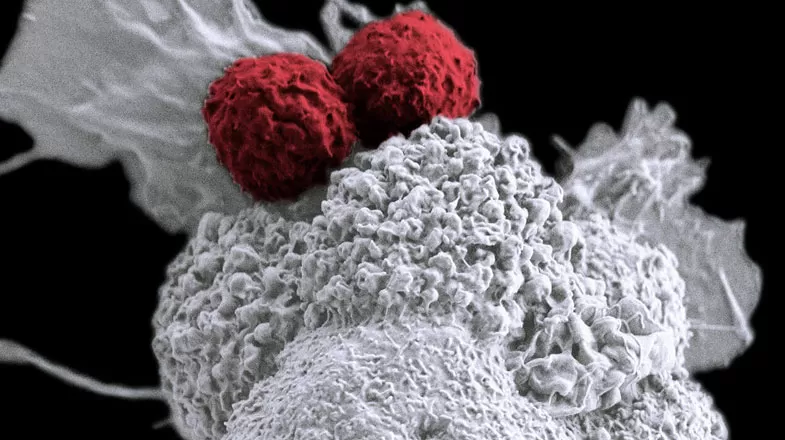
Tumor-Typing: A New Way of Assessing Cancer Treatment Options
A method of analyzing tumors could inform response to immunotherapies. You can probably guess how your closest friend will react to a particular situation: It’s an intuition that arises out of the database of knowledge about her built up over years and stored in your mind. Predicting how someone might react to a treatment, though, is a process that has vexed researchers working in the burgeoning field of precision medicine. How can they “know” a patient’s immune system, a patient’s cancer, and...
Media Resources & Contact Information
Anyone may view our press releases, press statements, and press kits. However, to ensure that customers, investors, and others receive the appropriate attention, Pfizer Media Contacts may only respond to calls and emails from professional journalists.
